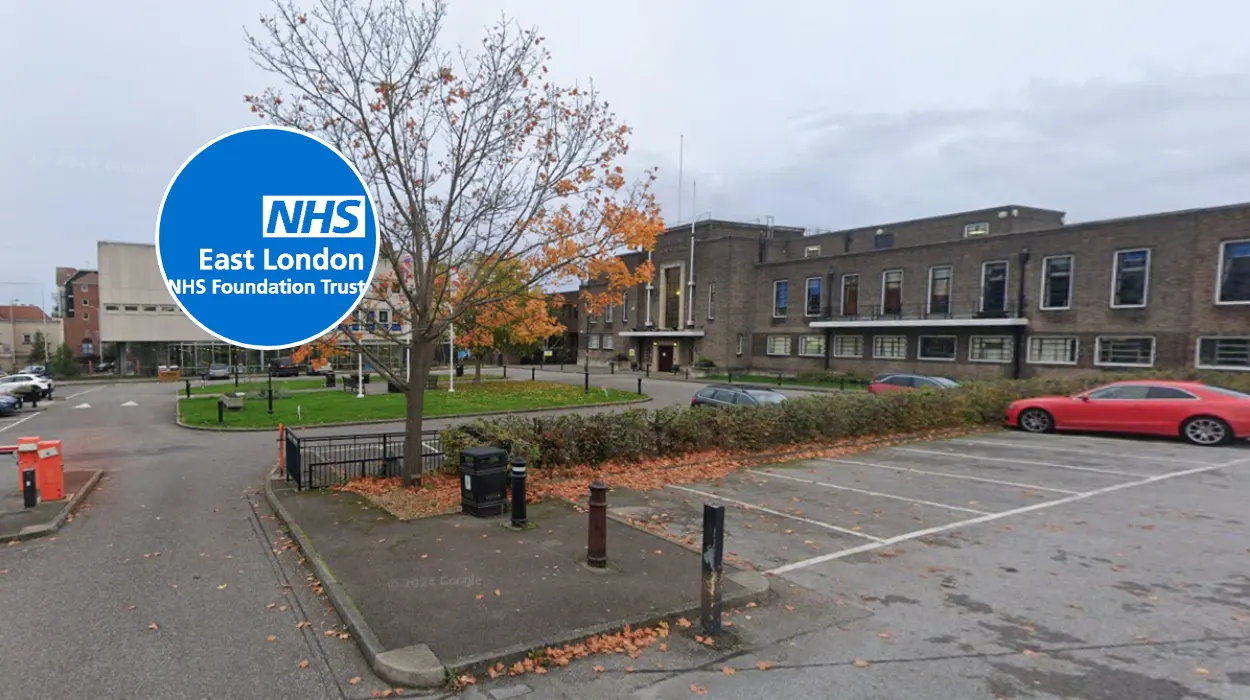Key Points
- NHS North East London Integrated Care Board (ICB) has been mandated to cut running costs by 50% by the end of 2025.
- The Havering Council reports major reductions in funding for several vital health services, including diabetes support, mental health for homeless youth, and wellbeing services for asylum seekers.
- The financial squeeze is part of broader national cuts, with NHS England also set to halve in size and merge into the Department of Health and Social Care.
- Havering’s share of health inequalities funding fell sharply from £1.7 million last year to £661,893 for 2025/26.
- Services for autistic and ADHD children, and housebound residents, see increased funding amid widespread cuts.
- Staff and service providers face deep uncertainty, with some local contracts at risk if alternative funding cannot be found.
- The NHS NEL system has a significant and persistent underlying financial deficit, with pressures exacerbated by very limited capital budgets compared to other London health systems.
- Government guidance requires a minimum 40% reduction in agency spend and a 15% reduction in bank staff across NHS providers.
- There is concern within local authorities about the disproportionate impact of these cuts on the most vulnerable populations, with local health and wellbeing outcomes at risk.
Severe cost-cutting measures are set to reshape health and care services in Havering and across north-east London, as the NHS North East London Integrated Care Board prepares for a dramatic 50% reduction in running costs by the end of 2025. The move, prompted by national NHS restructuring and ongoing financial deficits, has sparked concern among local officials, service providers, and at-risk patient groups.
- Key Points
- Why Is The NHS North East London Integrated Care Board Cutting Costs By 50%?
- What Services Are Being Cut Or Facing Reduced Funding?
- Are Any Services Set To Benefit Amid The Cuts?
- What Have NHS And Council Officials Said About The Cuts?
- What Is Driving The Financial Crisis In North-East London’s NHS?
- What Broader Changes Are Taking Place In The NHS Nationally?
- What Impact Will These Cuts Have On Havering Residents?
- What Happens Next — And How Are Stakeholders Responding?
Why Is The NHS North East London Integrated Care Board Cutting Costs By 50%?
As reported by local democracy reporter Sebastian Mann for The Havering Daily, the NHS body responsible for overseeing healthcare in north-east London has been told it must slash its running costs by half by the end of next year, following an instruction from NHS England—set to halve in size itself and merge into the Department of Health and Social Care (DHSC). The cuts are part of a wider UK government strategy to streamline NHS bureaucracy, focus on strategic commissioning, and achieve significant efficiency savings in response to spiralling deficits.
In a Health Update issued April 2025 and published by the London Borough of Havering, ICB leaders admitted that the rapid timescale and lack of clarity around the changes have made it “extremely challenging” for local staff, many of whom are “deeply worried about what it means for them personally.” The report stresses that deep restructuring will be required for the ICB to meet its statutory duties while functioning within drastically reduced budgets.
“We know already that it will be extremely challenging to achieve this within the new resource limit. The ICB will need to look very different by early 2026 – and this will go substantially beyond just a reduction in size,” states the April 2025 Health Update prepared for Havering Council.
What Services Are Being Cut Or Facing Reduced Funding?
Based on Mann’s detailed coverage in The Havering Daily, Havering will see some of the most severe funding reductions in the area, with immediate impact on services tackling diabetes, programs supporting young homeless people’s mental health, and funding for wellbeing support for asylum seekers and refugees—all of which have been slashed to zero for the coming year. The so-called “community chest” fund for local support networks is halved, and funding for carer training and hearing loss initiatives was reduced or eliminated.
Moreover, the ICB’s overall allocation of health inequalities funding for this year dropped from £1.7 million to just £661,893, severely restricting the scope of local authorities to maintain existing frontline projects. This dramatic scaling-back coincides with enduring local challenges: the National Child Measurement Programme found that 68% of Havering adults are overweight or obese, far above the London and England averages, heightening anxiety about the borough’s ability to tackle public health crises going forward.
Are Any Services Set To Benefit Amid The Cuts?
Despite the widespread reductions, certain projects see substantial increases in support. According to Mann’s report, funding for speech therapy for autistic and ADHD children nearly triples, rising to £133,127. Additionally, the allocation to develop a better primary care model for housebound residents grew from £45,595 to £132,330—reflecting a shift in priorities towards strategic and preventative care, as required by the NHS’s new focus.
A significant portion—£210,000—is reserved for coordinators employed by the council, though the total running cost of this staffing team is more than £500,000 annually. Havering Council warned that without further support, “alternative budgets” may be required or staff contracts risk being terminated.
What Have NHS And Council Officials Said About The Cuts?
The financial pressures and uncertainty have prompted a sober response from local officials. The ICB stated in a report published this week that
“there has been a reduction in the total funds available over the agreement due to ICB [cuts]”.
The April 2025 Health Update likewise forewarns that “a fundamental rethink of our operating model” is now unavoidable and the impact on staff “will go substantially beyond just a reduction in size”.
In official documentation for the Joint Health Overview & Scrutiny Committee held in April, council representatives confirmed that the expected total reduction in ICB administrative costs since 2022 would be 65%, accounting for previous and new cuts combined. Members repeatedly raised concerns about the risk to local services, especially for vulnerable and marginalised groups.
What Is Driving The Financial Crisis In North-East London’s NHS?
Joint Forward Plan documents shared by the North East London ICB confirm that the local health system began the year with an underlying deficit of over £100 million, which even the most ambitious recovery plans are unlikely to resolve entirely in the short term.
“The system receives a very limited capital budget in 2023/24 of £95 million, significantly less than other London ICSs,”
notes the draft plan, placing further strain on efforts to modernise or expand services.
A marked discrepancy persists in how funding is distributed between different parts of north-east London, with some boroughs receiving less than their fair share relative to need. The lack of funding for preventative and upstream interventions makes it harder to reduce pressure on hospitals, compounding the effect of the cuts.
What Broader Changes Are Taking Place In The NHS Nationally?
Further to the restructuring of regional ICBs, the NHS nationally is facing its own dramatic overhaul. At the core of these changes is a directive that, by quarter 3 of the 2025/26 financial year, ICBs and NHS provider trusts must meet major cost-saving targets: agency staff spend must be reduced by 40%, and expenditure on bank staff must fall by 15%. The government’s funding model also requires that any new money accounts for employer costs like national insurance and wage uplifts, but provides only a modest net increase after efficiency deductions.
“All our work in the coming months will be carried out in the context of the difficult financial situation facing our Trust; the healthcare sector nationally faces major challenges,” the ICB stated in its April health update.
What Impact Will These Cuts Have On Havering Residents?
As confirmed in council documents and through interviews with council and NHS officials, residents facing the loss or reduction of specialist support—including diabetes, mental health for young homeless people, wellbeing services for asylum seekers and carer training—will likely experience immediate negative effects on health and wellbeing. The sharp drop in dedicated inequality funding makes it harder to target the borough’s most profound health challenges, particularly in the absence of alternative funding sources.
However, there are pockets of progress, such as increased support for children with neurodevelopmental disorders and the housebound, which reflect a strategic attempt to focus scarce resources on prevention and priority needs. Despite these bright spots, both local council and NHS officials acknowledge that the future operating model must fundamentally change to meet statutory duties within the much-reduced resource envelope.
What Happens Next — And How Are Stakeholders Responding?
With little detail yet available from central government on the future structure and scope of the ICB, the next steps are uncertain. The North East London Integrated Care Partnership (ICP) and its member councils are currently engaging in an urgent review of their integrated care strategy and work plan for 2025/26, aiming to accommodate the 50% cost reduction while maintaining core statutory duties for the local population.
Stakeholders across Havering and north-east London remain watchful, with senior staff and service users bracing for disruption and seeking clarity on which programs can be saved, merged, or cut. The next year will be crucial in determining how this unprecedented shake-up will ultimately affect one of London’s most challenging health environments.


